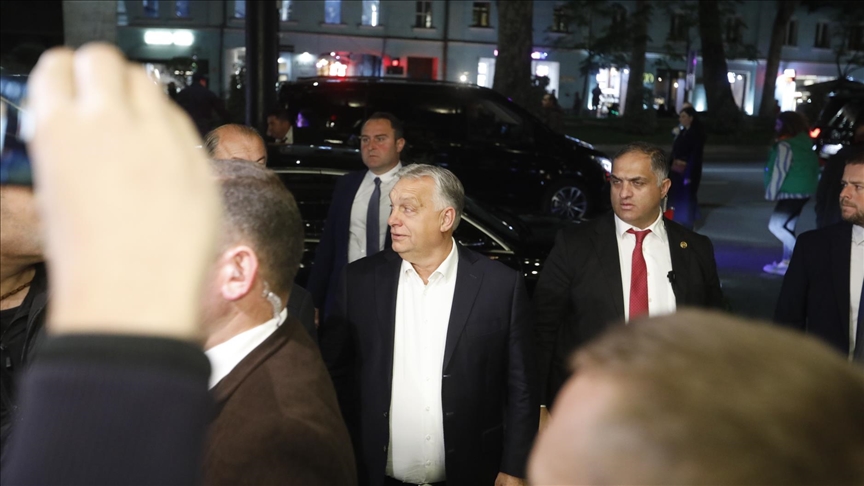Hungarian Premier Orban’s post-election visit to Georgia not done in EU’s name: Spokesperson
BRUSSELS
The EU on Monday said that Hungarian Prime Minister Viktor Orban, whose nation currently holds the EU Council presidency, will not be representing the bloc during his upcoming visit to Georgia.
The visit comes at a time of heated debate over the results of Georgia’s weekend parliamentary elections, which have drawn scrutiny from international observers and prompted calls for investigation.
Orban’s trip should be seen as part of “bilateral relations between Hungary and Georgia,” commission spokesperson Nabila Massrali told a press briefing, stressing that Orban had received no mandate from the EU Council to represent the bloc in Georgia.
During his trip to Tbilisi, Orban is expected to meet with Irakli Kobakhidze, leader of the ruling Georgian Dream Party.
The EU has expressed ongoing concerns about the integrity of the recent Georgian elections.
A joint statement by EU foreign policy chief Josep Borrell and the EU Council underscored that the EU is closely monitoring developments in Georgia.
Preliminary findings by the Organization for Security and Cooperation in Europe (OSCE), which led an election observer mission, cited a “tense environment” during the election process, marked by reports of voter intimidation, ballot secrecy violations, and procedural inconsistencies.
According to the EU, these issues cast doubt on the election’s legitimacy and public trust in the results.
Borrell and the EU Council urged Georgian election officials to address these irregularities through a “swift, transparent, and independent” investigation, stressing the importance of resolving these allegations to restore confidence in the electoral process.
Georgian President Salome Zourabichvili further fueled the controversy, alleging foreign interference in the election by Russian operatives and declaring her unwillingness to accept the results.
The ruling Georgian Dream Party won Saturday’s parliamentary elections with 53.93% of the vote.
Orban’s visit follows earlier diplomatic trips to Moscow and Beijing shortly after assuming the EU presidency on July 1.
Both visits drew criticism from Brussels, heightening existing tensions between the EU leadership and Hungary.
Anadolu Agency website contains only a portion of the news stories offered to subscribers in the AA News Broadcasting System (HAS), and in summarized form. Please contact us for subscription options.




